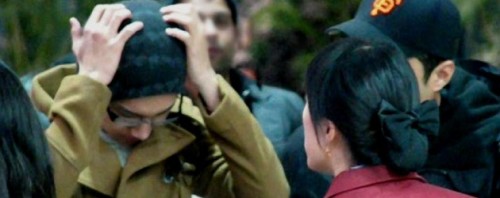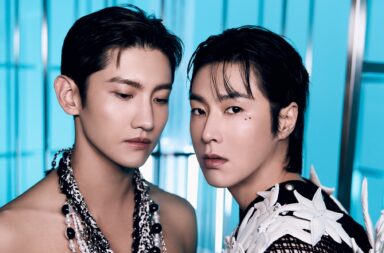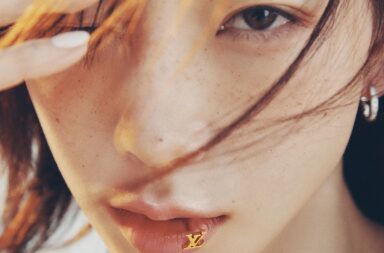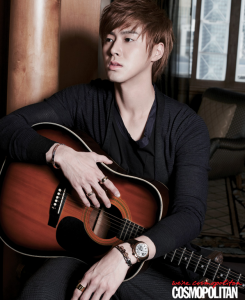 The definition of an anti-fan, according to Wikipedia is someone who engages in obsessive research about something they claim to oppose, but are still very interested in. When I was a Jonas Brothers fan way back in the day (don’t judge, please…), I encountered these kinds of people for the first time while watching their music videos religiously and reading the comments underneath. There would be users who would post something like “Nick, you’re so ugly and your shoes are so gay” or “Why can’t you sing, Joe? You sound like a dying hippopotamus.” That baffled me to no end–sure, I respected that everyone had different tastes in music and maybe a band of three pop-singing brothers weren’t some people’s cup of tea, but why bother writing these mean comments? I don’t like listening to Nicki Minaj‘s songs, but I don’t go out of my way to find her music videos and comment on them meanly. Avoiding them makes much more sense. But in the world of K-pop, the anti-fan is a whole different species.
The definition of an anti-fan, according to Wikipedia is someone who engages in obsessive research about something they claim to oppose, but are still very interested in. When I was a Jonas Brothers fan way back in the day (don’t judge, please…), I encountered these kinds of people for the first time while watching their music videos religiously and reading the comments underneath. There would be users who would post something like “Nick, you’re so ugly and your shoes are so gay” or “Why can’t you sing, Joe? You sound like a dying hippopotamus.” That baffled me to no end–sure, I respected that everyone had different tastes in music and maybe a band of three pop-singing brothers weren’t some people’s cup of tea, but why bother writing these mean comments? I don’t like listening to Nicki Minaj‘s songs, but I don’t go out of my way to find her music videos and comment on them meanly. Avoiding them makes much more sense. But in the world of K-pop, the anti-fan is a whole different species.
There are different types of anti-fans in K-pop. Firstly, there is the type that I mentioned above: the highly opinionated anti-fan. I consider them relatively harmless, because even though they express discontent toward K-pop, they don’t actually go out of their way to destroy the artist. These types of anti-fans focus their efforts on targeting the artist’s fanbase instead, and even then, most of them don’t do so intentionally. (Warning: the following video contains strong language)
Okay, please don’t go spam that guy’s YouTube page with hate comments after watching that. Personally, I wouldn’t even call him an anti-fan. Or if I did, it would be a very mild one. All he did was express his negative views on K-pop, albeit vehemently. We K-pop fans are opinionated, so it’s only fair that everyone else gets to be as well, right? A video here and there, a blog maybe, no harm done. The artists these anti-fans talk about will most likely never even see the things they post, so it’s not a big deal. Free speech has always been a part of the culture I grew up in, so instead of getting furious over seeing videos like that, I’m usually pretty neutral about them.
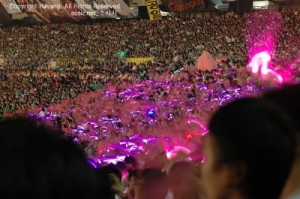 But I guess that’s not the case everywhere, because anti-fans in South Korea can get downright vicious. Anti-fans are just as vocal as fans are, and they show it… not only through innocent videos and blog posts, but through actions that can seriously damage an artist’s confidence. The most damaging groups of these anti-fans target specific artists while supporting another. Take DBSK‘s 3rd Asian Tour Concert for example, when fans of the Wonder Girls and Big Bang reserved as many tickets to the concert as possible to keep Cassies out and force the boys to perform to a small audience. A similar incident occurred when SNSD took the stage during the 2008 Dream Concert. The girls faced a quiet, lightstick-less audience as fans of other groups suddenly stopped cheering during their performance.
But I guess that’s not the case everywhere, because anti-fans in South Korea can get downright vicious. Anti-fans are just as vocal as fans are, and they show it… not only through innocent videos and blog posts, but through actions that can seriously damage an artist’s confidence. The most damaging groups of these anti-fans target specific artists while supporting another. Take DBSK‘s 3rd Asian Tour Concert for example, when fans of the Wonder Girls and Big Bang reserved as many tickets to the concert as possible to keep Cassies out and force the boys to perform to a small audience. A similar incident occurred when SNSD took the stage during the 2008 Dream Concert. The girls faced a quiet, lightstick-less audience as fans of other groups suddenly stopped cheering during their performance.
Anti-fans acting alone to damage or attempt to hurt a K-pop artist can be just as hard to deal with. These people seek to create a physical or psychological effect on the artist. Former Super Junior member, Hankyung, dealt with this kind of anti-fandom when an anti-fan jumped onstage during a birthday celebration for him, cursing and telling Hankyung to “crawl back to China.” The anti was later searched by security guards and a bottle of liquid that may or may not have been sulfuric acid was found on him. Clearly, he intended to harm Hankyung. The member also faced rumors started by antis who claimed that he trades in amphetamine drug injection needles, which led to Hankyung doing a urine test to prove his innocence. That incident was definitely not optimal for his image. And if that wasn’t enough, the poor guy also got a shipment from an anti later that contained a few small bags of blood (where do antis even get all this blood from?), a knife, and a stabbed picture of himself.
Perhaps the most covered incidents of anti-fandom are the ones that involve Changmin and Yunho from DBSK. When Changmin was at the Kimpo Airport in 2008 with the group, he was approached by two angry Chinese anti-fans who hit him on the head. This is clearly a violation of an artist’s privacy, and to be honest, I was pretty indignant after reading about it. I understand that people dislike things, but to go this far and to physically hurt someone because of it is unacceptable. Two years ago, Yunho also experienced a dangerous situation when he drank a soda spiked with glue given to him by an anti-fan. He was rushed to the hospital and wound up okay, but that kind of serious attempt to hurt him left him pretty shaken.
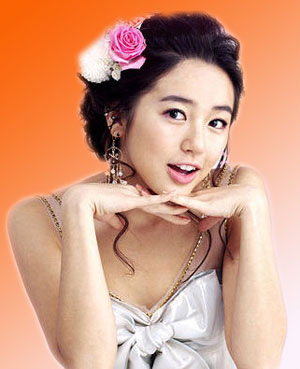 Actors and actresses encounter the same kind of anti-fandom. One of my favorite actresses, Yoon Eun-hye, was shot in the eyes with a water gun filled with soy sauce and vinegar. That’s painful. And it’s also disrespectful and a breach of personal space in a serious, harmful way.
Actors and actresses encounter the same kind of anti-fandom. One of my favorite actresses, Yoon Eun-hye, was shot in the eyes with a water gun filled with soy sauce and vinegar. That’s painful. And it’s also disrespectful and a breach of personal space in a serious, harmful way.
Criticism from these anti-fans can be extremely hurtful. Idols work hard to get to where they are now, and sometimes it’s hard to think of them as normal human beings with their fame and all, but they have emotions that can be hurt as well. Anti-fans of 4Minute have apparently sent them aggressive messages telling them to get plastic surgery at one point, and SNSD‘s anti-fans even have an anti-fan club name: STAND. Which, by the way, stands for Stand Till All Nine Disappear. However, most anti-fans belonging to that club call themselves civil antis, which means that they do not actually wish to go out and physically harm SNSD.
As much as I hate to admit it, anti-fans do hold a significant amount of power over K-pop culture in general. Artists are cautious of what they say and what they do, and their managers are constantly on the lookout for potentially dangerous stalkers during events (leading to alleged cases of violence, even). Antis are known to have caused many artists lots of heartache, especially leaders like Leeteuk who depend on support from K-pop fans, who has openly said that he reads anti-fans’ comments in an attempt to improve.
Like I said before, sometimes we forget that K-pop idols are regular human beings, just like us. I don’t like it when someone puts me down in an unnecessarily harsh way, and I certainly don’t like haters. I don’t think anyone does. Although most K-pop artists brush anti-fan incidents off and carry on with their normal lives, anti-fans have a bigger impact on K-pop culture than what can be seen on the surface. It’s the darker side of K-pop, and as sad as it may be, as long as there are K-pop fans out there, there will be anti-fans as well.
